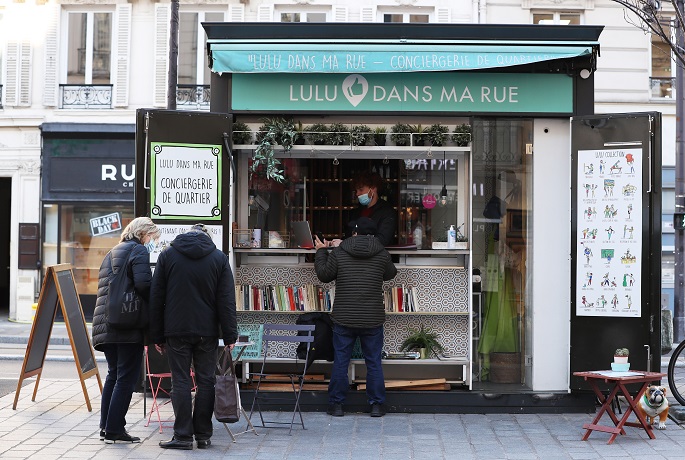France, UK prepare to ease measures as Germany struggles to flatten curve
Published : 22 Nov 2020, 21:11
The leaders of France and the United Kingdom are expected to announce an easing of restrictions this week ahead of the Christmas holiday period, but cases in Germany, which has avoided a full lockdown to curb the second wave of the pandemic, remain too high as health authorities there continue to struggle to control infection rates, reported EFE-EPA.
FRANCE
French President Emmanuel Macron wants to provide "coherence" and "clarity" to his compatriots during a speech he is due to give to the nation on Tuesday, in which he will explain the next steps that the government will take toward easing the nationwide lockdown that is in place.
In a statement to the Journal du Dimanche on Sunday, Macron said that "there is nothing worse than uncertainty and the impression of endless gloom" after the series of measures taken over the last month to curb the second wave of the disease.
“We need coherence, clarity, direction. Knowing together where we are going and how we will get there,” Macron said, adding that this was “the key to confidence, which itself is the key to success.”
But the president pointed out that “it will be difficult, because the pandemic by definition is unpredictable and global.”
The current lockdown, initially approved between October 30 and December 1, is already bearing fruit: on Saturday, France recorded a fifth consecutive day of falling numbers of patients in intensive care units.
But it remains the fourth country in the world in terms of number of cases (2.127 million) and has already recorded 48,518 deaths from Covid-19. This week, health officials published reports on the rate of depression and other psychological problems, which have doubled since the end of September.
Government spokesman Gabriel Attal said that three phases of easing the current lockdown are planned "depending on the evolution of health care": one from December 1, another for the Christmas holidays and the last one in January.
Leaks to the press in recent days suggest that small businesses may be allowed to open from December 1, to try to cushion the economic and social impact of the restrictive measures, but bars and restaurants would remain closed until January.
UK
British prime minister, Boris Johnson, also plans to ease restrictions ahead of the Christmas period to allow family reunions, Downing Street said.
Johnson is due on Monday to announce his plan to reintroduce a three-tier system of restrictions starting December 2, when the lockdown measures applied throughout England on November 5 are expected to end.
That roadmap will include a break in some of the social restrictions between December 22 and 28, although the plan depends on Johnson agreeing a similar timetable for the whole of the UK with the autonomous governments of Scotland, Wales and Northern Ireland, Sky News reported.
Johnson, who has been in solitary confinement after being in contact with a deputy who tested positive for Covid-19, "will also set out how people will be able to see their loved ones at Christmas, despite ministers being clear this will not be a normal festive period,” a government spokesperson said.
Outside the Christmas period, the restrictions in the regions most affected by the epidemic will be tougher than those imposed in October in England.
The UK recorded 341 deaths from Covid-19 and 19,875 infections on Saturday, compared to 20,252 infections and 511 deaths reported the day before.
GERMANY
In Germany, the cumulative incidence in the last seven days is 140.7 cases per 100,000 people.
The number of patients with Covid-19 in intensive care units on Saturday was 3,630, of whom 2,098 - 57 percent - are on life support, according to data from the German Interdisciplinary Association for Intensive Care and Emergency Medicine (DIVI).
One month ago, on October 15, the number of patients being treated in ICUs was only 655.
Currently, 21,742 beds in intensive care are occupied and 6,216 are free, although the main problem is a lack of personnel, with health workers among the most affected by the second wave.
The reproduction factor (R), which reflects the evolution of infections from 8 to 16 days ago, stands at 1.07, which means that every 100 infected people infect on average another 107 people.
After daily infection figures spiked significantly in October and early November, the numbers appear to be stabilizing, although at a rate that is still too high. The consolidated decline in cases that was hoped for with the introduction of partial lockdown restrictions at the beginning of this month has not materialized.
The goal now is to achieve a cumulative incidence below 50 per 100,000 inhabitants that will allow health authorities to again properly trace every case.
On Wednesday, the Chancellor, Angela Merkel, will meet with the heads of government of the country’s regions to try to agree on a major package of nationwide measures after failing to reach a consensus last week.


